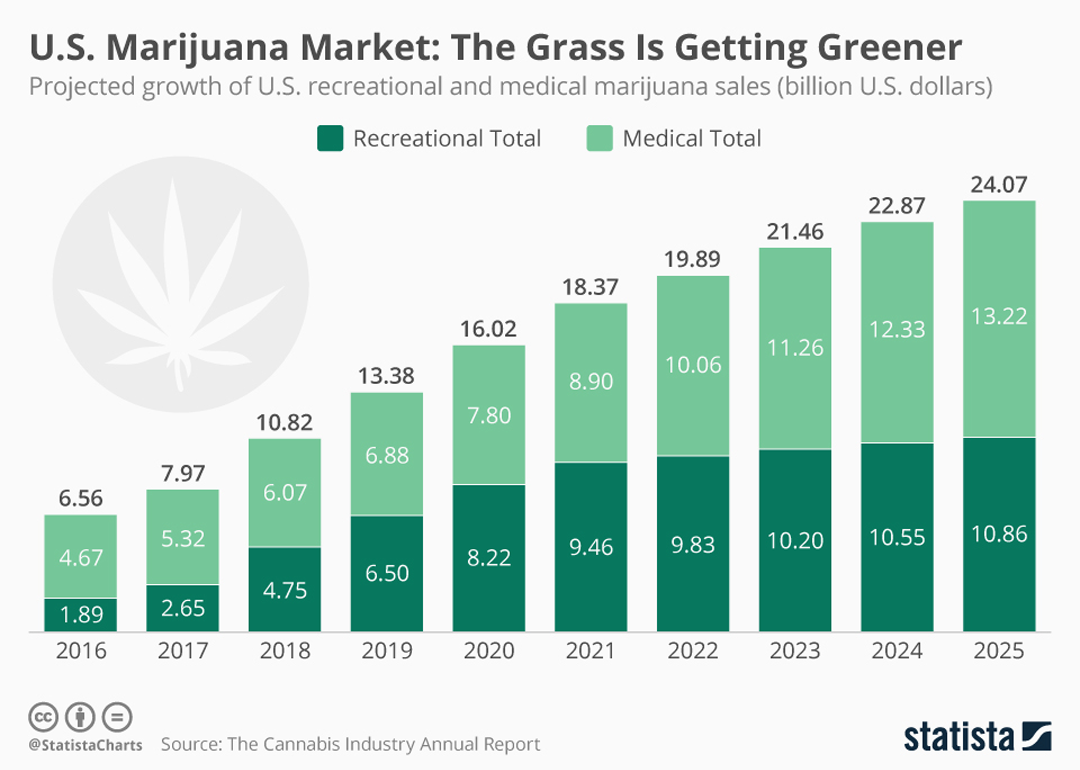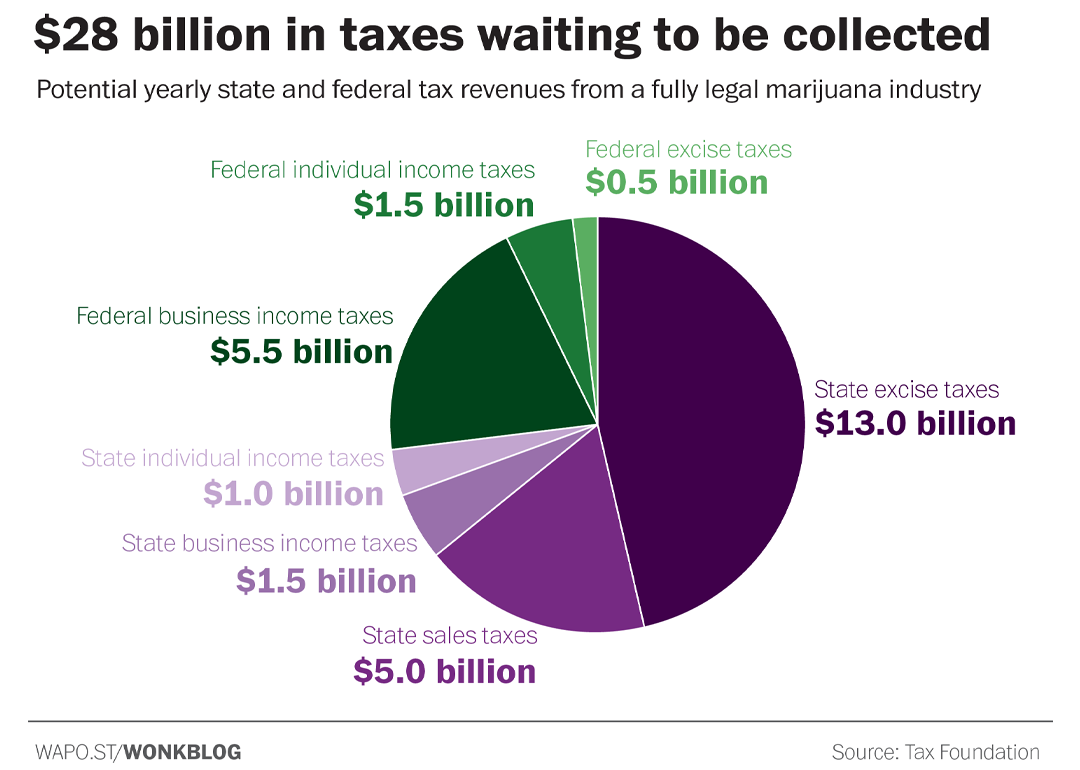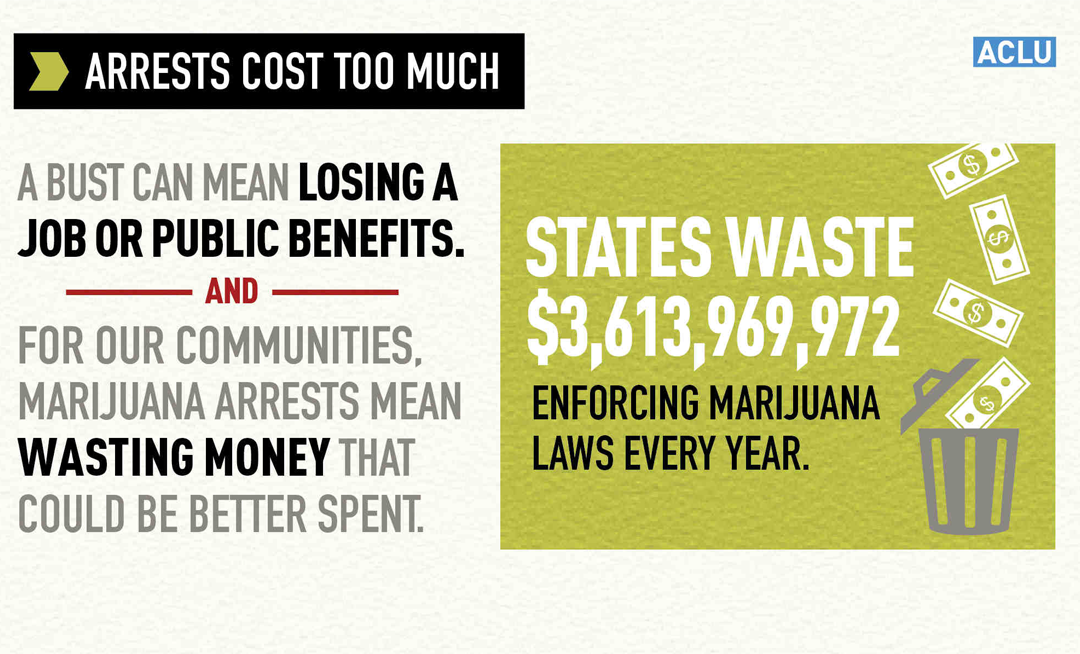Legalizing Marijuana on a Federal Scale
How federally legalizing cannabis can benefit you
Over the past several years, states have been voting to decriminalize marijuana, making it legal for both medicinal and recreational purposes—and also making it a big business. Taking a leaf out of Colorado or Washington's book, four states—New Jersey, South Dakota, Montana, and Arizona—passed measures in 2022 to make marijuana consumption for recreational purposes legal. Mississippi also voted to allow medical marijuana.
Still, state legislation remains heavily divided on the topic. Since the 2020 election, South Dakota Circuit Judge Christina Klinger ruled that the measure was unconstitutional. In November 2021, the South Dakota Supreme Court agreed and ruled against pot legalization. On the other hand, Arizona has collected more than $284 million of tax revenue since the legalization of marijuana in the state.
Following the 2022 midterms in November, 37 states allow the use of medical cannabis products, with 21 states and the District of Columbia allowing the use of non-medical cannabis products for personal or recreational consumption. More states are continuing to propose new legislation to encourage legal activity. For instance, Delaware is circulating HB 305, a bill that would make marijuana legal for adults.
Better-than-expected sales of marijuana in Colorado and Washington over the past several years have resulted in buoyant tax revenues. In 2021, Washington collected $559.5 million of legal marijuana revenue, over $85 million more revenue than 2020. Meanwhile, Colorado collected $423 million of marijuana tax revenue in 2021, up almost 10% from the year prior.
In 2019, total tax revenue collected by all states topped $1.7 billion. Two years later, the total dollar revenue had more than doubled. Aggregate revenue for all states hit $3.7 billion for legal, adult-use cannabis sales, and this does not include revenue generated for statewide budgets, cities, and towns. In addition, six states that have approved marijuana use had not started collecting marijuana tax revenue in 2021.


An RCG Economics and Marijuana Policy Group study on Nevada says that legalizing recreational marijuana in the state could support over 41,000 jobs till 2024 and generate over $1.7 billion in labor income. The ICF study estimates at least 81,000 additional direct, indirect, and induced jobs in California as a result of legalized marijuana sales. It also projects an increase in total labor income by at least $3.5 billion.
New Frontier's report predicting the impact of federally legal marijuana suggests that nationwide legalization could generate 1 million jobs by 2025. These jobs would likely come from the quickly growing industry that would spring up across the nation. Workers would be needed to farm, process, distribute, and sell marijuana-based products.
When considering the economic benefits of legal marijuana, it's important to think of the money that might be saved as well as revenue that could be generated through such a process. Currently, federal marijuana enforcement costs several billion dollars per year. A 2013 report by the American Civil Liberties Union found that the costs at that time were approximately $3.6 billion per year.

As of 2022, 37 states have legalized the medical use of marijuana, with 21 of those allowing recreational use as well. The District of Columbia, Guam, Puerto Rico, and the U.S. Virgin Islands also allow medical use by qualified individuals.
There is ample pushback against the idea of legalizing marijuana across the country. Critics cite the potential for confusion among law enforcement officers aiming to keep up with shifting regulations, a concern about increased homelessness or youth use of the substance, the potential for decreased property values, and much more. Some are opposed to changing the regulatory status of marijuana simply because it means a change to the status quo.
All of these reasons combine to decrease the likelihood that marijuana will become legal at a national level any time soon. However, as more and more states move to individually decriminalize cannabis use in various ways, and as the economic benefits of a legal marijuana industry take effect, there are also many compelling reasons to consider nationwide legalization.

